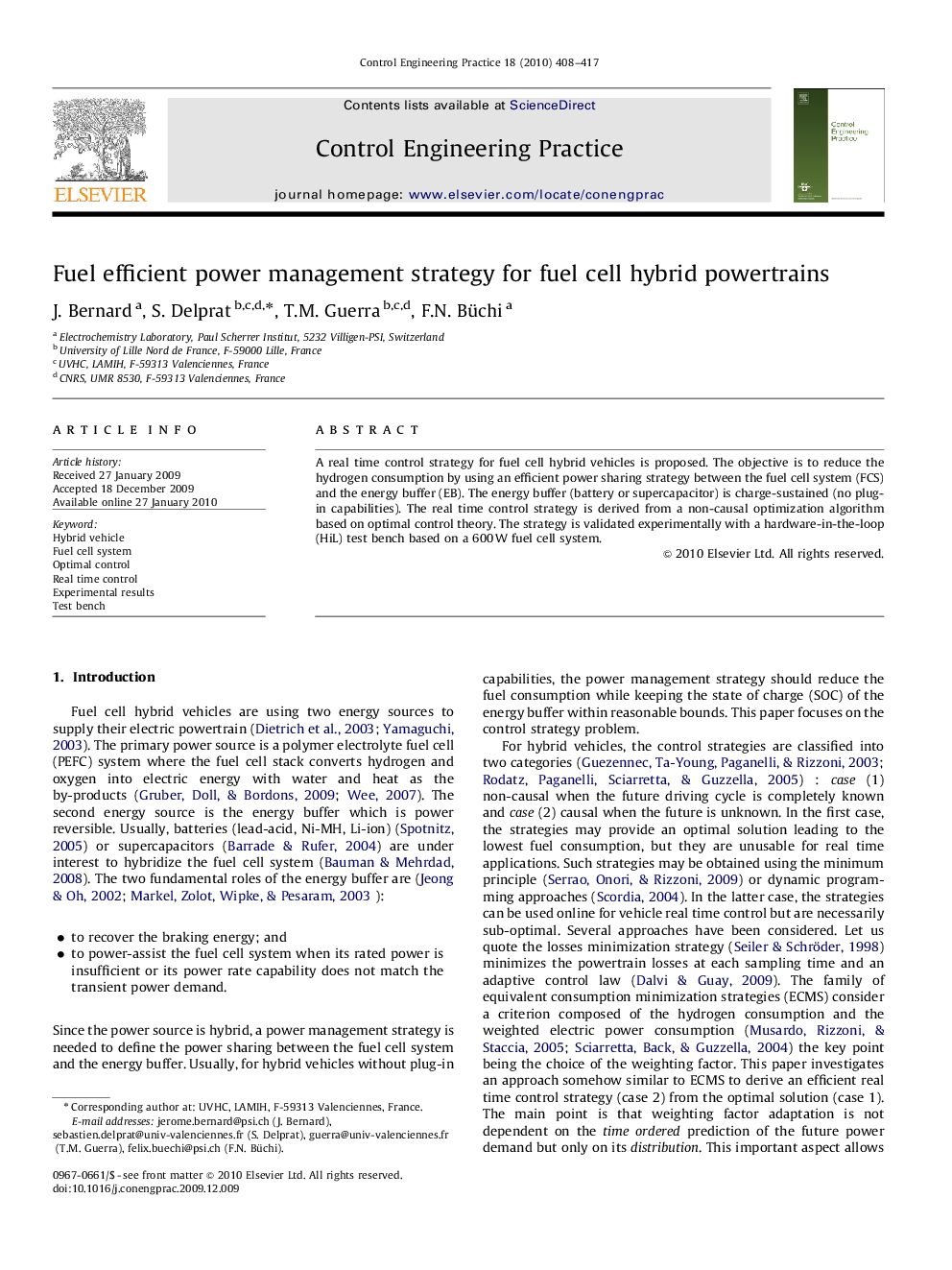| Article ID | Journal | Published Year | Pages | File Type |
|---|---|---|---|---|
| 700516 | Control Engineering Practice | 2010 | 10 Pages |
Abstract
A real time control strategy for fuel cell hybrid vehicles is proposed. The objective is to reduce the hydrogen consumption by using an efficient power sharing strategy between the fuel cell system (FCS) and the energy buffer (EB). The energy buffer (battery or supercapacitor) is charge-sustained (no plug-in capabilities). The real time control strategy is derived from a non-causal optimization algorithm based on optimal control theory. The strategy is validated experimentally with a hardware-in-the-loop (HiL) test bench based on a 600 W fuel cell system.
Keywords
Related Topics
Physical Sciences and Engineering
Engineering
Aerospace Engineering
Authors
J. Bernard, S. Delprat, T.M. Guerra, F.N. Büchi,
